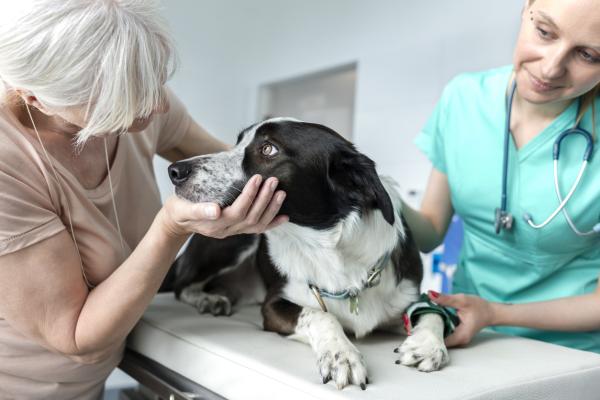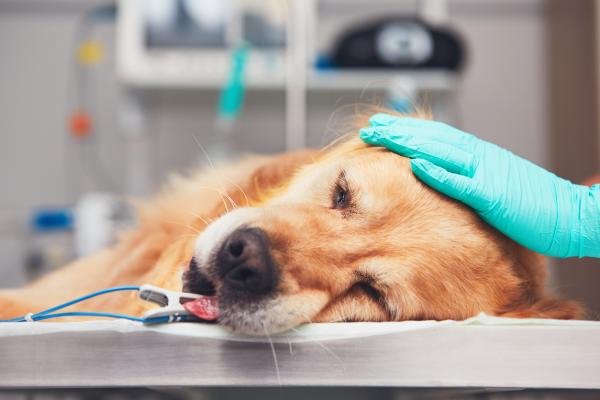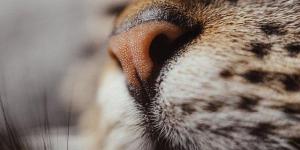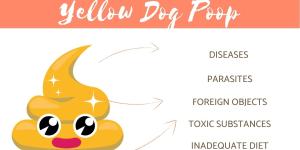My Dog Has a Runny Nose With Green Mucus



See files for Dogs
A runny nose for a dog does not necessarily mean they have a health problem. It could mean something as small as a humid room or even being excited to see you. However, a runny nose accompanied by mucus that is thick, green, yellow or smelly can mean a serious health problem. It could be a sign of infection, the presence of a foreign body or even something as life-threatening as a tumor. For this reason, we need to observe for other symptoms and take them to a veterinarian for diagnosis.
This AnimalWised article explains why my dog has a runny nose with green mucus. In addition to the causes, we provide the treatment for a runny nose with green mucus, as well as what prevention methods can stop it happening in the future.
Type of mucus in my dog's runny nose
When a dog has a runny nose, various issues can be the underlying cause. Upper respiratory tract infections are common, but there are many possibilities. The color and the consistency of the mucus present can help point us in the right direction for a diagnosis, although it will not provide a definitive cause. Before we explain the causes of a runny nose with green mucus in dogs, we provide some of the types of mucus in dogs according to color:
- Clear and thin fluid: when the mucus is watery and clear, it means it is less likely to be an infection. They could be having a reaction to the ambient temperature, something which occurs when it is cold because the warmth of their nostrils cause condensation. It is also possible they are having a mild reaction to pollen or some other allergen in the air.
- White mucus: when the dog's mucus is white, it usually is a sign of infection. While it is possible a foreign substance could be causing white secretions, it is likely due to a respiratory infection which has reached the nasal passages. This could be a viral or bacterial infection.
- Yellow or green mucus: this is also a likely sign of infection. Specifically, it is likely to be a bacterial infection, although a viral or even fungal infection is possible. The reason for the yellowish or green color is the antibodies working to fight the infection which can produce pus.
- Bloody mucus: in these cases, the blood can either be bright red or dark brown. For fresh red blood, it means there is a discharge close to the nostril. This could be due to a foreign body, infection or even a physical trauma. Darker blood means the source is further down into the respiratory tract, something which can be very serious. It could even be a result of a lung infection such as pneumonia in dogs.
Generally speaking, the thicker the consistency of the mucus, the more likely there is an infection. Regardless of the color, if your dog has regular nasal discharge, you should take them to a veterinarian for a checkup. Below, we look in greater detail at the possible causes of a runny nose with green mucus in dogs.
Infections
One of the most common causes of your dog having green mucus coming from their nose is the presence of an infection. These can be bacterial, fungal or viral infections and may have many origins. If the dog not only has green snot coming from its nose, but also presents with sneezing, loss of appetite and/or diarrhea, it is likely an infection that will require veterinary attention.
There may also be gagging and nausea. This is due to the dog swallowing the secretions, which can be very thick. If it is a bacterial infection, the vet will prescribe antibiotics. If it the mucus derives from a fungal infection then antifungal medication will be implemented. Both may last as long as 6 - 8 weeks depending on the extent of the infection. Supportive treatment will be used in the case of viral infections. This means that the symptoms will be treated until the infection dies down. Antibiotics will also likely be used to prevent a concurrent bacterial infection.
While our pet is recovering, we should encourage them to eat and drink. This is because infections can cause a dog to lose appetite as well as become dehydrated. Wet food (as opposed to dry food), cooked meats and rice with broth might help your dog to recover better. We need to also ensure they are kept in a warm enough environment, away from draughts and kept dry. We will need to reduce their walking as they will likely not have the energy and the exposure can stunt their recuperation. Observing the correct medication plan and keeping an eye out for worsening symptoms will also mean they will better recover.
Depending on their location, these infections could be as a result of rhinitis or sinusitis. The nasal cavity extends into the frontal and maxillary sinuses, meaning the infection can spread. Nasal inflammations are known as canine rhinitis and sinus inflammations are sinusitis. In younger dogs, both types of infections occur when there has been damage caused to the nasal cavity mucosa from a previous infection, foreign bodies or trauma.
Canine distemper can also lead to secondary bacterial rhinitis. In older dogs, it is common for rhinitis and sinusitis to be caused by tumors or infections in the mouth. Both disorders require veterinary assistance and are diagnosed with x-rays, cultures, endoscopies or biopsies. If the infections become chronic, surgery may be a necessary recourse.

Unilateral secretion
Sometimes we can see that the secretion of green mucus come from both nostrils, known as a bilateral secretion. A unilateral secretion is that which comes from only one nostril and may be due to one of the following causes:
- Oronasal fistula: this may have a congenital origin, i.e. from birth, such as a cleft palate. It may also be acquired from something like an infected tooth. In these cases, the food which a dog ingests can go into nasal passages and cause unilateral discharge and/or sneezing in your dog. This occurs especially when eating. The treatment requires surgical intervention. When you adopt your dog, a vet should provide a thorough check-up to check the overall health of the dog. This should include checking their mouth and sinuses. Checking this at an early stage is a key factor in preventing fistulas occurring later in life.
- Foreign bodies: dogs can accidentally (or even intentionally) suck up certain elements such as leaves, seeds, spikes, splinters and many other objects. Foxtail in dogs are a particularly worrisome foreign body as they can latch on to the nose tenaciously. In addition to green mucus, we may see that a dog sneezes violently, rubs their nose constantly or even has a hemorrhage. If the foreign body is lodged for days, the nasal discharge will likely be very thick. If we can see the object, it may be removable with tweezers. If we don't see it clearly, we should not try to manipulate the nasal passage as it can result in the object going in even further. In this case, the vet will be in charge of the extraction. It will likely be under sedation and antibiotics may also be prescribed to take care of the infection.
- Polyps: polyps are growths in the nasal mucosa which are not cancerous. They produce, in addition to mucus secretions, hemorrhages and obstructions of the air passage. They can be removed, but have the potential to develop again.
- Tumors: most often these appear in older dogs. They may be benign or malignan tumors in your dog, but the symptoms for both may be secretion hemorrhage and sneezing. If they are large enough, they can deform the shape of the dog's face. It can even make the eye protrude. They can be removed, but the prognosis depends on the type of tumor present.

Preventing green mucus in a dog's nose
The best way to prevent secretions from a dog's nose is to maintain their overall health. This means ensuring they stay away from possible infectious material, but is also means taking a more holistic approach. This will include:
- Vaccinations: maintaining dog's vaccination schedule means their immune system is up to standard and they can better fight infection.
- Deworming: similar to vaccinations, deworming schedules for dogs means parasites will stay away and reduce the chance of infections which can lead to nasal discharge.
- Diet: keeping your dog on a healthy diet which provides for mind and body with the right nutrition also means they can stay healthy for longer.
- Exercise: taking them for walks and ensuring they are fighting fit will help to prevent the onset of infections.
These are general prevention methods to avoid a runny nose with green mucus in dogs. However, you need to know your dog's specific health issues to cater to their needs. This requires regular veterinary checkups and taking them to the clinic as soon as you see any worrying symptoms.

This article is purely informative. AnimalWised does not have the authority to prescribe any veterinary treatment or create a diagnosis. We invite you to take your pet to the veterinarian if they are suffering from any condition or pain.
If you want to read similar articles to My Dog Has a Runny Nose With Green Mucus, we recommend you visit our Other health problems category.








